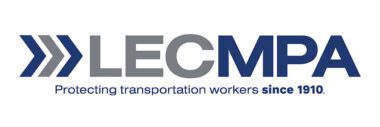Job Insurance for TCU Members
With LECMPA job insurance, TCU members protect themselves from wage loss due to discipline.


With LECMPA job insurance, TCU members protect themselves from wage loss due to discipline.

TCU fully supports the programs available for active and retired TCU members and their families. With the money savings programs available, in some situations, the benefits can offset paid union dues.

Cost of Wages and Fringe Benefits as of January 2025 for Carmen and Clerks.
On October 5, the Coordinated Bargaining Group (CBG) announced they had reached a Tentative National Agreement (TA) with the nations’ freight railroads. On October 7, that information was posted on this website and circulated via Flash News. The TA is now being circulated to the members of the six CBG unions approximately 85,000 rail workers.
In accordance with the IAM Constitution the monthly per capita tax is increased by using the average of the percentage increase in the Consumer Price Index for Urban Wage Earners and Clerical Workers (CPI-W) as published by the U.S. Department of Labor’s Bureau of Labor Statistics and the Canadian Consumer Price Index as published by
Yesterday, the Senate Commerce Committee voted largely along party lines to approve Lynn Westmoreland for a five-year term on the Amtrak Board of Directors. Final approval of Mr. Westmoreland will now head to the full Senate where he’s likely to get confirmed. It’s unclear when the final vote will occur. A few weeks ago, TCU posted
The Thirty-Fifth Regular Convention of the Transportation Communications Union/IAM will be held at the Mirage Hotel & Casino, Las Vegas, Nevada, commencing at 9:00 a.m. on Tuesday, July 24, 2018, and will continue from day to day until completion of the business of the Convention, including the election of National Officers, and shall conclude not
On Wednesday night, the U.S. Senate voted to confirm President Trump’s package of three nominees to the National Mediation Board (NMB). With these confirmations, the Board is now officially in Republican control and their decisions will be decidedly pro-management for the near future. The NMB is the agency charged with settling labor disputes in
Several states and local governments have adopted paid sick leave laws throughout the U.S. These laws allow people who predominantly work for employers within their jurisdictions to accrue and use paid sick time for various health concerns for both themselves and their family. Two (2) of these laws are the California Healthy Workplaces, Healthy Families
The 2017 AFL-CIO Convention wrapped up yesterday, and with it the adoption of a number of resolutions meant to guide the organization – and the labor movement – as it continues to fight for working families. Click HERE to see all the resolutions passed. Some of the highlights: Resolution #1 – A Worker’s Bill of
Most railroad retirement annuities, like social security benefits, are scheduled to increase in January 2018 on the basis of the rise in the Consumer Price Index (CPI) from the third quarter of 2016 to the corresponding period of the current year. Cost-of-living increases are calculated in both the tier I and tier II benefits included
Recently, the Jones Act has come under heavy scrutiny from those in the press and across the political spectrum. TCU believes that the Jones Act is good for the United States because it strengthens and supports both our national economy and our national defense. In short, the Jones Act is a law that says if
A tentative National Agreement has been reached by the six Rail Unions who comprise the Coordinated Bargaining Group (CBG). These six Unions are now in the process of submitting the Tentative Agreement to the specific ratification process of each Union. This is a major development in a long and contentious bargaining round with the industry.